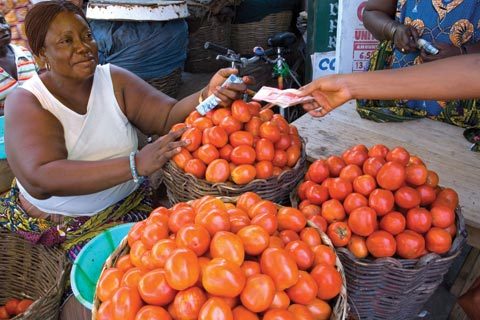Whenever I want to learn something new, in another area of the world, my dad always tells me to look at the map of the selected country of choice to better understand a) what we are talking about b) where we are geographically located and c) a little bit of country profile ( socio-economic and political situation).
My eyes these days are looking at Africa. The 5-days event in Washington DC organized by the White House was about expanding trade and investment ties with African leaders, as well as expanding peace and cooperation on security and development issues. During this US-Africa summit 2014, President Barack Obama stressed the importance of investing in this huge country, the world's second largest and second-most populous continent with 1.1 billion people (after China). The Carlyle group, Blackstone Group, General Electric Co and the Coca-Cola Company are among companies that announced $14 billion worth of deals in Africa at the summit. Those investments and U.S. government commitments are part of $33 billion announced this week to support development projects in Africa, according to the White House.
In the meantime, China's trade with Africa surpassed that of the U.S, with $200 billion last year (more than double that of the U.S.), and focusing on large infrastructure projects on the continent, such as building railways in Uganda and roads in Kenya.
According to the World Bank Africa's competitiveness report 2013, businesses can advocate for reforms that enhance competitiveness at national level and lend their support to initiatives that facilitate trade beyond national borders. On the other hand, governments can lay the foundations for a sound and stable business climate required for firms to invest, prosper and can provide the legal and regulatory frameworks required for regional integration.
One of the major impediments to developing trade in Africa and improving competitiveness is the insufficient amount and quality of infrastructures and the failure to benefit from trade liberalization, along with the need to improve both the energy and transportation sectors.
One solution, as it came out of from the summit and should be further strengthened, tested, discussed and implemented in other world regions is public-private partnerships.
As Michael Porter, Harvard Business strategy professor rightly pointed out, creating shared value consists of creating economic value for businesses that also creates value for society by addressing its needs and challenges. With this thought in mind, we should think about what it means to us "nutritionally-good", "environmentally-good," what is good for society is also good for business, changing the paradigm and rethink of what we choose and why we choose it.
I was checking the Coca-Cola Company, Starbucks Coffee company and Illy Caffé. Three companies I like for its products, its sustainable activities and its global outreach to the developing world. We hear a lot about the environment and the sustainability of our planet, what we can do to reduce carbon emissions, travel sustainably, preserve the planet and recycling. As consumers, we tend to identify ourselves with products that are making a positive impact on society. This way, we feel good about buying the product and use it several times.
The Coca Cola company, for instance, launched the Replenish Africa Initiative (RAIN) with the goal of extending safe water access and sanitation programs to 4 million people by 2020. The RAIN project has launched projects across 37 countries with the support of $30 million commitment that runs through 2015. In this way, The Coca Cola company is growing its business on one hand, catalyzing investment in clean water access and improving water and sanitation access for school children, and creating more jobs and economic opportunities across the continent, especially through women empowerment and entrepreneurship programs.
Illy Caffé, an Italian coffee company, opened the Universidade do café in Brazil- the coffee university- delivering online courses in agribusiness management and coffee production by targeting farmers, agricultural technicians, agronomists, animal scientists, social and land workers, investors, public and private officials to get the best out of their natural resources, creating both economic and social value for the citizens.
Starbucks Coffee company established C.A.F.E practices, that helps the company buy high-quality, ethical sourced coffee. Starbucks works with a network of organizations to ensure that its suppliers provide good working conditions and use environmentally responsible growing methods. Basically farms and mills are evaluated using a comprehensive scorecard of more than 200 indicators ( promoting social, economic and environmental standards) by third-party verification organizations, which are overseen by SCS Global services and then certified by C.A.F.E practices.
So there are companies that look at the economic-social and environmental pillars of sustainability, taking into consideration the active role of women in entrepreneurship and water as a limited source on the planet but fundamental to our life cycle.
We should acknowledge their work and take them as good examples to boost other companies to create a more sustainable place to live, not only looking at profits but also at the well-being of its workers and civil society.
Africa is the engine of new growth, and development can be further powered by a strategic collaboration between private companies and the public sector.

